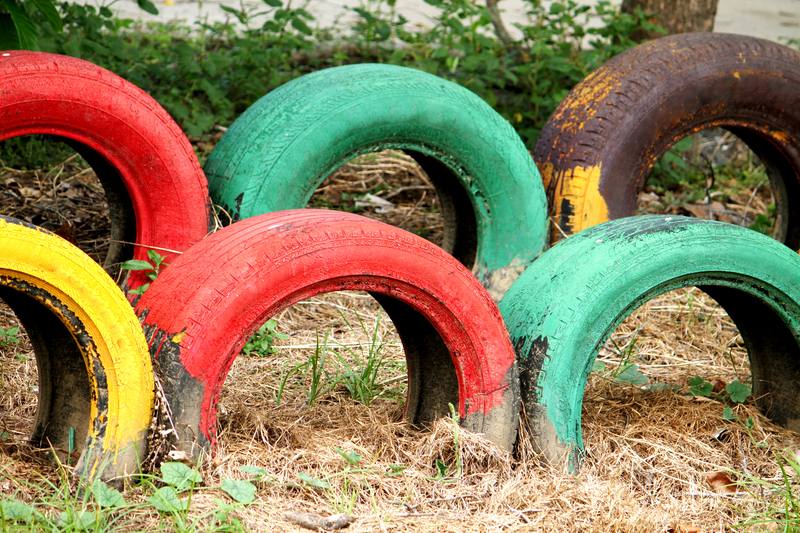The Best Eco-Friendly Options for Pots and Pans Disposal
Getting rid of old pots and pans doesn't mean they have to end up in a landfill. With environmental awareness on the rise, many homeowners are seeking eco-friendly ways to dispose of cookware. This comprehensive guide covers the best sustainable options for disposing of pots and pans, offering practical advice and responsible solutions for a cleaner, greener planet.
Why Eco-Friendly Cookware Disposal Matters
Choosing the right method to dispose of old cookware is more important than you might think. While it's tempting to simply toss that battered frying pan into the trash, traditional disposal methods contribute significantly to environmental pollution. Pots and pans often contain metals and coatings that don't break down naturally, leading to long-lasting waste problems.
- Metal cookware can take hundreds of years to decompose in landfills.
- Chemical coatings, like Teflon, can leach toxins into the environment.
- Improper disposal wastes valuable resources that could be recycled or repurposed.
Benefits of Sustainable Cookware Disposal
- Reduces landfill waste
- Prevents toxic chemicals from contaminating soil and water
- Promotes responsible recycling and resource recovery
- Offers opportunities to give back to the community

Top Eco-Friendly Methods for Pots and Pans Disposal
1. Recycling Old Pots and Pans
One of the most eco-conscious ways to deal with unwanted cookware is to recycle your pots and pans. Most metal cookware is made from aluminum, stainless steel, or copper, which are highly recyclable materials.
- Contact your local recycling center: Many facilities accept cookware as scrap metal. Call ahead to confirm what items they accept. Remove non-metal parts (like plastic handles or lids) if requested.
- Check community recycling events: Some towns or cities hold special recycling collection drives for hard-to-recycle household goods, including cookware.
- Scrap metal dealers: If your local curbside recycling doesn't accept pots and pans, a scrapyard or metal recycler will usually take them. Make sure your cookware is clean and free of non-metal attachments.
2. Donating Usable Cookware
If your pots and pans are still in decent condition, consider donating them instead of tossing them away. Many nonprofit organizations, shelters, and thrift stores will gladly accept gently used cookware.
- Contact local charities, shelters, or transition homes.
- List items on Freecycle, Craigslist, or local "Buy Nothing" groups.
- Colleges, community kitchens, and mutual aid groups often welcome donations.
3. Repurposing Pots and Pans
With a bit of creativity, you can give your old cookware new life. Repurposing pots and pans is a great way to keep them out of landfills while adding unique flair to your home or garden.
- Garden Planters: Turn deep pots or large pans into quirky plant containers for herbs, succulents, or flowers. Drill a few holes for drainage.
- Art projects: Use frying pans as canvases for painting, or stack them to create sculptures.
- Organizational tools: Smaller pots make excellent desk or craft organizers.
- Decorative uses: Vintage copper or cast iron pans make charming wall displays.
4. Upcycling Pots and Pans
While similar to repurposing, upcycling focuses on transforming your old cookware into something of even greater value or function. There's a growing market for upcycled kitchenware--visit local craft fairs, search online for ideas, or find artisans who specialize in upcycling metal goods.
- Create unique clocks from cast iron pans
- Turn saucepans into pendant lights
- Upcycle lids into serving trays or unique wall art
How to Prepare Pots and Pans for Recycling or Donation
Before taking your cookware to a recycling center or charity, proper preparation ensures your items are accepted and processed efficiently:
- Clean thoroughly to remove food residue and grease
- Remove plastic handles, silicone grips, or glass lids if requested
- Check for damage--donations should be free from deep rust, holes, or toxic coating degradation
Eco-Friendly Pots and Pans Disposal for Non-Metal Cookware
Not all cookware is made of recyclable metal. Non-stick, ceramic, glass, and enamel pans require different strategies for sustainable disposal.
Disposing of Non-Stick Cookware
Most non-stick coatings (like Teflon(TM)) are tricky to recycle due to their chemical makeup. Here's what you can do:
- Check with manufacturers: Some brands offer cookware recycling programs. Mail your old pans back for safe recycling or repurposing.
- Scrap metal drop-off: Remove non-metal components; some recyclers accept the metal even if the coating remains.
Eco-Friendly Ceramic and Glass Cookware Disposal
- Donate usable items: Charity shops, thrift stores, and second-hand retailers may accept intact ceramic or glass cookware.
- Contact specialty recycling centers: Some facilities process ceramics and glass for reuse in road aggregate or tile production.
Disposing of Cast Iron Cookware Sustainably
Cast iron is highly durable and endlessly recyclable. Even broken or rusty cast iron pans can be:
- Restored at a local metal shop--seasoning and minor repairs can return vintage pans to service.
- Donated to culinary schools, blacksmiths, or artists for training and craft projects.
- Recycled as scrap iron--check with local yards for drop-off guidelines.
Manufacturer Take-Back and Recycling Programs
Some cookware brands have launched take-back or mail-in recycling programs to help customers dispose of old pans responsibly.
- Calphalon: Their "Calphalon ReNew" program allows customers to send in any brand of nonstick cookware for recycling in exchange for savings on new purchases.
- GreenPan: Some eco-focused manufacturers aim to incorporate recycled materials in their new products and may accept end-of-life items for repurposing.
Research your cookware brand online to see if a mail-back or trade-in program is available.
Eco-Conscious Disposal for Commercial Cookware
For restaurants or catering businesses, disposing of obsolete or damaged cookware can be daunting. Here's how to minimize waste and maximize positive impact:
- Bulk recycling at regional scrap yards
- Donating usable items to food banks, culinary training programs, or community centers
- Collaborating with local artisans to upcycle in large quantities
What NOT to Do: Unsustainable Pots and Pans Disposal Methods
- Don't throw cookware in the trash. Landfilled metal pans contribute to waste and may leach chemicals over time.
- Don't burn cookware or attempt to melt it at home. This releases hazardous fumes and can be dangerous.
- Avoid dumping non-stick pans in household recycling bins. They can contaminate recycling streams and endanger processing equipment.
Tips for Reducing Future Cookware Waste
Sustainable disposal of old pots and pans is crucial, but you can also make environmentally conscious choices when purchasing new items:
- Opt for high-quality, durable cookware made from recyclable materials
- Choose brands with take-back, refurbishment, or repair programs
- Avoid disposable and low-quality cookware that wears out quickly
- Maintain and repair existing cookware to extend lifespan
The Environmental Impact of Mindful Pots and Pans Disposal
By choosing eco-friendly options for pots and pans disposal, you're making a meaningful contribution to environmental health. Your efforts help:
- Reduce the volume of landfill waste
- Conserve valuable natural resources
- Minimize pollution and habitat destruction
- Promote a circular economy based on reuse and recycling
Summary: The Best Eco-Friendly Options for Pots and Pans Disposal
There are numerous sustainable ways to dispose of old pots and pans. Whether you recycle, donate, repurpose, upcycle, or participate in take-back programs, you're helping to protect the environment and reduce your ecological footprint.
- Recycle metal cookware with local facilities or scrap yards
- Donate usable pans to charities and community groups
- Get creative by repurposing or upcycling old pots and pans
- Explore brand-specific take-back and recycling programs
- Practice mindful consumption and care for your cookware

Frequently Asked Questions About Eco-Friendly Pots and Pans Disposal
Can you recycle pots and pans with non-stick coatings?
Some recycling centers may accept them as scrap metal after the handle and non-metal parts are removed. Always check with your local facility and, if possible, use brand take-back programs to ensure safe handling of chemical coatings.
Are glass lids recyclable?
Most household glass cookware lids (like tempered glass) aren't accepted in standard glass recycling due to their unique composition. However, some specialty recycling centers or reuse shops may take them.
What do I do with rusty or broken pots and pans?
Rusty or damaged metal pans can often be recycled as scrap metal. If they are still structurally sound, consider repairing, repurposing, or using them for crafts. Avoid donating heavily damaged items.
Is it okay to put pots and pans in my curbside recycling?
It depends on your municipality's guidelines. Check with your local recycling authority to see if they accept household cookware. Most often, larger metal recycling centers are the best option.
Conclusion
Making eco-friendly choices in how you dispose of pots and pans isn't just simple--it's essential for a more sustainable future. Next time you upgrade your kitchen, remember these responsible disposal options to ensure your old cookware serves a new purpose or is recycled responsibly.
Every small action adds up. Choose the best eco-friendly disposal method for your pots and pans and encourage others in your community to do the same, for a cleaner and healthier planet.